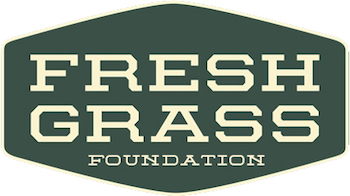A Conversation with Joy Kills Sorrow’s Matt Arcara
by Kim Ruehl, for FolkAlley.com
Boston is a town where acoustic guitars – and their players – seem to collect on the street like so many snowflakes. Whether it’s the number of schools and colleges, the diverse community, the weather, or simply something in the water, Boston has granted us folk fans songcrafters as variant as Mark Erelli, Crooked Still, and Lake Street Dive. Wherever its artists have fallen on the spectrum of traditional music, though, Boston has always instilled in them a certain contemporary zeal for creative imagination and aural experimentation.
Joy Kills Sorrow is no exception. Pulling together highly skilled instrumentalists with backgrounds in everything from jazz to classical and indie rock, the troupe started with a stringband lineup and seems to have made every effort to defy its own parameters. On their forthcoming EP Wide Awake, the quintet welcomes new bassist Zoe Guigueno by making space in their style for her influence as well. The result is even more indefinable than the Joy Kills Sorrow you thought you already knew. From the speed-train chugging mandolin of the opening track “Was It You” to their entirely non-gimmicky, reimagining of the Postal Service’s “Such Great Heights,” and beyond, Wide Awake is a wonderful little disc.
I was recently lucky enough to chat with guitarist Matthew Arcara about the origins of the recording and what has driven the band to where they are now:
Kim Ruehl: Let’s start by talking about your new EP ‘Wide Awake’ – what is this album about for you and where did you start?
Matthew Arcara: For us, I think this record is really about getting a bigger, more powerful sound from the band. Trying to get more of a vocals-in-band sound rather than a vocals-in-front-of-band sound, and trying to make a really strong upbeat record. That informed the whole process from arranging to EQing instruments for the record, how the mix was done – trying to get a fuller sound that has more impact and holds a little bit more air in the band. It informed how we made arrangement choices and what we did with guitar and mandolin at different points of time, how we could fill it out a little bit more and get the power and impact a rock and roll band has with drums and stuff, while maintaining the stringband structure and texture.
KR: Sounds like, instead of just trying to share some new songs you wrote, you’re really trying to get the recording experience down, to make the finished product as authentic as possible.
MA: Yeah, I think we really were focused on the acoustic quality of the record as well as making sure the guitar sounded as full as possible and building arrangements around an idea: How do we make this tune really interesting but still stay rocking the whole way through? We were trying to take advantage of being able to do that, overdubbing a baritone guitar to fill things out or taking the octave banjo for a double-banjo [sound], to fatten it up.
KR: Why did you stick to just seven tracks?
MA: We went into the studio with seven tunes prepared that we wanted to record, that we loved, and we felt great about all of them. We made it an EP because we have a new bass player, and we wanted to put out [something] that said we have a new lineup and this is what we’re doing. This is a new turn we’ve taken, and if you know where we’ve come from, you’re still going to like it, but this is a new sound. We wanted to be able to go into the studio, do the tunes, do the mixing and editing and have it come out on a convenient time frame, to make a statement about what the new lineup is doing… The EP format fit that equation and lessened the pressure on us to not have to come up with all the new material. We’re planning to do a full-length in the next year, year-and-a-half. But we had some tunes we felt really strong about, so we decided to put them out now and then continue working on the full-length for the future.




